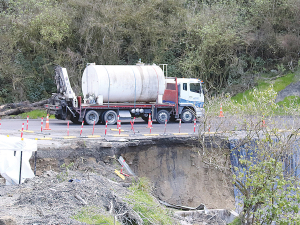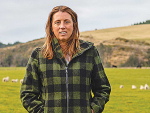"The roads into our town are so fragile that another storm could take them out at any time."
That's how Wairoa Mayor Craig Little describes the predicament that Wairoa is facing following Cyclone Gabrielle. He says the town's access to the outside world is hanging by a thread due to the state of the highway between Napier and Wairoa.
Little points out that the town was cut off for three months when the Waikere bridge was washed away, which has just been replaced by a single land Bailey Bridge.
He told Rural News the problems with fragile infrastructure are putting the economic viability of the town at risk. Little believes there is a 100% chance of Wairoa going down the gurgler if infrastructure issues aren't properly resolved.
"Any company or potential investor coming to town and looking at those roads and the connectivity would likely think twice," he adds. "There is little or no tourism happening at the moment and any downturn in the rural economy will put pressure on retail in the town."
Little says that horticulture is a sector that could work well for the district. He believes there is a lot of suitable land available, and fruit grown in Wairoa ripens earlier than fruit grown in Hawke's Bay.
He says the Tātau Tātau o Te Wairoa Māori Trust has developed a significant horticulture operation around Wairoa, but they are having second thoughts about expanding until the uncertainty of infrastructure - especially roading is resolved.
According to Little, most of the roads that service the town were built before the era of larger trucks and the advent of these has put pressure on the existing network.
The horror and power of Gabrielle is clearly visible in both the township and in the rural hinterland. People are still living in temporary accommodation and there are red stickered homes all around Wairoa. In the rural areas, water still ponds in what were paddocks of maize, which have been destroyed.
Silt covers pastures and homes and sheds are gone or beyond repair. Fencing remains a massive problem.
"Everyone is feeling it. Sheep and beef farmers are struggling to repair fences," Little says.
"They have probably got kilometres and kilometres to fix and at the moment. Myself, and others, are just putting up hot wires to keep the cattle in, but that doesn't keep the sheep in - so there is a long way to go yet."











